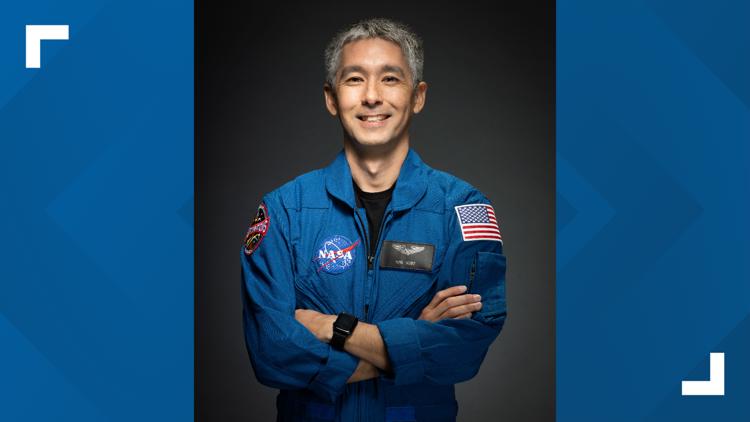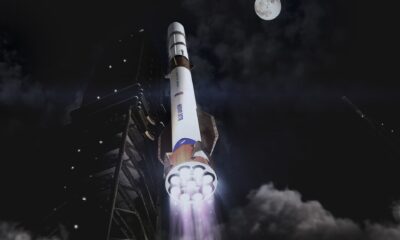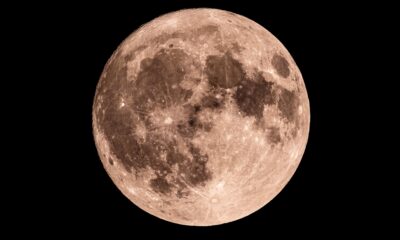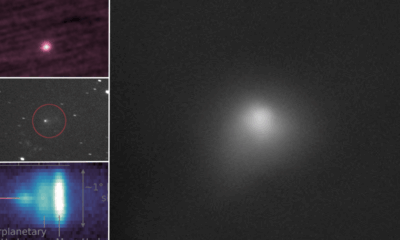Education
Purdue University Graduates Join NASA’s New Astronaut Class

Purdue University has achieved a significant milestone in the field of space exploration. Two of its graduates, including Indiana native Mark Vande Hei and Kelsey Johnson, have been selected for NASA’s latest astronaut class. This announcement marks an important step for both individuals as they embark on a rigorous training program designed to prepare them for future missions to the International Space Station, the Moon, and potentially even Mars.
The new astronaut class, announced on March 15, 2024, will undergo nearly two years of intensive training. This comprehensive program includes instruction in advanced robotics, spacewalking skills, and survival techniques, which are essential for their upcoming assignments in space. The training is crucial for ensuring that astronauts can handle the complex challenges they will face during missions.
In addition to technical training, the selected individuals will also focus on teamwork and leadership development. The selection process for this class was highly competitive, with thousands of applicants vying for a spot. The final candidates were chosen for their exceptional skills and diverse backgrounds.
Kelsey Johnson, who holds a degree in aerospace engineering from Purdue, expressed her excitement about the opportunity. “Becoming an astronaut has been a lifelong dream of mine, and I am ready to take on the challenges ahead,” she stated.
Meanwhile, Mark Vande Hei, who previously served as a NASA astronaut, brings valuable experience to the team. He has already completed multiple missions and is well-versed in the demands of life in space. His experience will undoubtedly benefit the new class as they prepare for their future roles.
The upcoming training will emphasize physical fitness, technical skills, and psychological resilience. Candidates must be in excellent physical condition and able to work well under pressure. These attributes are essential for ensuring that they can effectively contribute to missions that could last several months.
As part of their training, astronauts will also participate in simulations designed to mimic the conditions they will face in space. These exercises will help them develop problem-solving skills and improve their ability to work as part of a team in high-stress environments.
NASA’s commitment to expanding its astronaut corps reflects its ambition to pursue more ambitious missions, including returning humans to the Moon by the end of the decade and preparing for human exploration of Mars in the 2030s. This new class of astronauts will play a vital role in these efforts as they work alongside seasoned professionals to push the boundaries of human spaceflight.
The inclusion of graduates from Purdue University in this prestigious program highlights the institution’s strong reputation in aerospace education and research. Purdue has produced numerous astronauts and continues to foster talent in the field.
As these two graduates begin their journey, they represent not only their university but also the future of space exploration. Their selection underscores the importance of education, perseverance, and the pursuit of dreams in the ever-evolving landscape of space travel.
-

 Technology4 months ago
Technology4 months agoDiscover the Top 10 Calorie Counting Apps of 2025
-

 Health2 months ago
Health2 months agoBella Hadid Shares Health Update After Treatment for Lyme Disease
-

 Health3 months ago
Health3 months agoErin Bates Shares Recovery Update Following Sepsis Complications
-

 Technology3 weeks ago
Technology3 weeks agoDiscover 2025’s Top GPUs for Exceptional 4K Gaming Performance
-

 Technology2 months ago
Technology2 months agoElectric Moto Influencer Surronster Arrested in Tijuana
-

 Technology4 months ago
Technology4 months agoDiscover How to Reverse Image Search Using ChatGPT Effortlessly
-

 Technology4 months ago
Technology4 months agoMeta Initiates $60B AI Data Center Expansion, Starting in Ohio
-

 Technology4 months ago
Technology4 months agoRecovering a Suspended TikTok Account: A Step-by-Step Guide
-

 Health4 months ago
Health4 months agoTested: Rab Firewall Mountain Jacket Survives Harsh Conditions
-

 Lifestyle4 months ago
Lifestyle4 months agoBelton Family Reunites After Daughter Survives Hill Country Floods
-

 Technology3 months ago
Technology3 months agoUncovering the Top Five Most Challenging Motorcycles to Ride
-

 Technology4 weeks ago
Technology4 weeks agoDiscover the Best Wireless Earbuds for Every Lifestyle





















